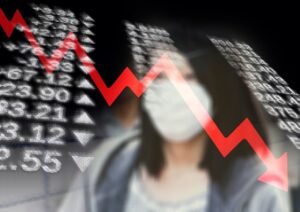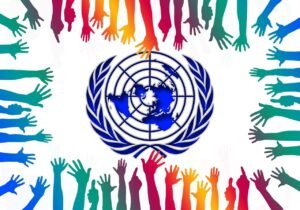Economics is a social science that delves into the production, distribution, and consumption of goods and services. It seeks to understand how individuals, businesses, and governments make choices regarding resource allocation. By examining these decisions, economics provides valuable insights into the functioning and structure of economies at various scales. The importance of this field cannot be overstated, as it directly impacts policies and practices that affect everyday life.
Economics is generally divided into two primary branches: microeconomics and macroeconomics. Microeconomics focuses on the behavior of individuals and firms in making decisions about resource allocation. It analyzes how these decisions influence the supply and demand dynamics within specific markets. For instance, microeconomic principles can explain why the price of a product may rise or fall based on consumer preferences and resource availability.
In contrast, macroeconomics examines the economy as a whole. It addresses aggregate phenomena such as national income, inflation, unemployment, and economic growth. This broader perspective is essential to understanding large-scale economic trends and informing policy decisions that aim to improve overall economic performance. Both branches interconnect, as the choices made by individuals can collectively influence macroeconomic outcomes.
A central theme in economics is the concept of scarcity, which refers to the limited availability of resources relative to human wants and needs. This fundamental economic problem necessitates choice, compelling individuals and societies to prioritize certain desires over others. As resources are finite, economics helps illustrate the trade-offs involved in decision-making processes and the potential impact of these choices on societal well-being. Thus, a comprehensive understanding of economics is essential for navigating the complexities of today’s world.
The Role of Economics in Society
Economics plays a critical role in shaping various aspects of society, influencing public policy, market behavior, and the livelihoods of individuals. As a social science, it provides frameworks and theories that help understand the complexities of human behavior regarding resource allocation, production, distribution, and consumption. By analyzing economic trends and principles, policymakers can develop strategies that address pressing societal issues, such as poverty, unemployment, and inflation. The tools of economics enable leaders to make informed decisions, promoting overall welfare and an equitable distribution of resources.
Public policy, which significantly impacts the everyday lives of citizens, is often rooted in economic analysis. For example, when governments consider taxation policies, they must evaluate how changes will affect both revenue generation and the distribution of wealth among different income groups. Similarly, in designing social welfare programs, a firm understanding of economic principles is essential to ensure effectiveness and sustainability. Policies that support economic growth create jobs, enhance productivity, and improve living standards, thus demonstrating the substantial influence of economics on societal welfare.
Furthermore, individual livelihoods are deeply interconnected with economic conditions and market behavior. Personal choices, from career selection to consumption patterns, are shaped by economic signals such as wage levels, price changes, and availability of goods and services. An understanding of basic economic principles can empower individuals to make informed decisions that enhance their financial well-being. By grasping concepts such as supply and demand or market competition, people can navigate the complexities of the market more effectively, fostering resilience in an ever-changing economic landscape.
Overall, the importance of economics in society cannot be overstated, as it guides decision-making processes that ultimately affect economic growth and welfare. By employing economic theories, societies can work towards sustainable and equitable development for all members.
The Principles of Economic Theory
The study of economics revolves around several foundational principles that provide a framework for understanding how resources are allocated and decisions are made within society. Among these principles, supply and demand prominently stand out. The law of supply and demand posits that the price of a good or service is determined by the relationship between its availability and the desire of consumers to purchase it. For instance, a sudden increase in demand for electric vehicles, driven by environmental concerns and incentives, can lead to higher prices if the supply does not keep pace. This interplay demonstrates how market forces influence economic outcomes.
Another key principle is opportunity cost, which refers to the value of the next best alternative that is forgone when making a choice. In personal finance, consider an individual who has $10,000 to invest. If they choose to invest in a stock that yields a 5% return instead of a bond that would yield 3%, the opportunity cost is the potential gains from the bond investment. This concept is crucial in illustrating the trade-offs that individuals and businesses face when allocating limited resources.
Comparative advantage further enriches the understanding of economic interactions. This principle suggests that countries or individuals should specialize in the production of goods or services for which they have a lower opportunity cost, thereby optimizing overall efficiency. For example, if Country A can produce wheat at a lower opportunity cost than Country B, while Country B can produce textiles more efficiently, both countries benefit from trading these goods. This specialization ultimately leads to greater productivity and economic gains.
These principles of economic theory—supply and demand, opportunity cost, and comparative advantage—provide valuable insights into decision-making processes at both individual and societal levels. By grasping these concepts, individuals and policymakers can better navigate the complexities of today’s economic landscape.
Economic Indicators and Measurements
Understanding the economic landscape of a nation involves analyzing various metrics known as economic indicators. These indicators collectively provide valuable insights into a country’s economic health and can significantly influence policy decisions. Among the most frequently referenced indicators is the Gross Domestic Product (GDP), which measures the total monetary value of all goods and services produced within a nation over a specified period. A rising GDP often signifies a growing economy, while a declining GDP may indicate economic troubles.
Another critical measure is the unemployment rate, which reflects the percentage of the labor force that is currently without work but actively seeking employment. High unemployment rates can signal economic distress, while low rates often suggest a thriving job market. Additionally, inflation rates are vital indicators that showcase the rate at which prices for goods and services increase. Controlled inflation is a sign of a healthy economy, yet hyperinflation can erode purchasing power and spark economic instability.
While these economic indicators are essential for diagnosing economic conditions, they are not without limitations. For instance, GDP does not capture informal economic activity, and thus may undervalue the contributions of certain sectors. Similarly, the unemployment rate can be misleading as it does not account for discouraged workers who have stopped looking for jobs. Inflation measurement can also be distorted by changes in consumer behavior or market structure. Consequently, policymakers must consider these limitations when interpreting economic indicators to implement effective strategies.
In summation, understanding these key economic indicators—GDP, unemployment rates, and inflation rates—enables stakeholders to evaluate a nation’s economic performance comprehensively. Despite their limitations, they remain crucial for informing government policies aimed at fostering economic stability and growth.
Global Economics: A Unified World Market
Global economics is an essential framework that encapsulates the complexities of international trade, globalization, and the interdependence of national economies. In our increasingly interconnected world, understanding these dynamics is crucial for addressing significant global challenges, including poverty, climate change, and economic inequality. Globalization has reshaped how countries engage with one another, as markets become more integrated and cross-border transactions become commonplace. This integration enhances the economic interdependence among nations, leading to a unified world market that requires a comprehensive understanding of economic principles.
International trade serves as the backbone of global economics, providing a platform for countries to exchange goods, services, and resources. As nations specialize in the production of particular commodities, they seek to trade with others to obtain products that are less efficient for them to produce. This specialization fosters competition and innovation, ultimately benefiting consumers through lower prices and increased variety. However, reliance on global trade also exposes economies to external shocks, necessitating careful analysis and proactive policy measures to mitigate potential risks.
The role of economics in addressing pressing global issues cannot be understated. For instance, tackling poverty requires an understanding of the economic factors that contribute to its persistence. By fostering economic growth and creating job opportunities, nations can improve living standards and reduce inequality. Additionally, economic principles are vital in formulating strategies to combat climate change, as environmental sustainability often intersects with economic decisions. Policymakers must consider the economic implications of environmental regulations to strike a balance between growth and sustainability.
Thus, the study of global economics is not merely academic; it has far-reaching implications for society. By comprehensively understanding global economic interconnections and challenges, we can work collaboratively to forge solutions that enhance the well-being of individuals and communities around the world.
The Importance of Economic Education
Economic education serves a fundamental role in equipping individuals and communities with the knowledge needed to navigate complex financial landscapes. In today’s fast-paced world, the ability to comprehend basic economic principles is more crucial than ever. Understanding economics facilitates informed decision-making in personal finance, business operations, and public policy, ultimately fostering smarter choices that impact not only individual well-being but also community health and growth.
One of the significant benefits of economic literacy is the enhancement of personal decision-making. Individuals who grasp fundamental economic concepts, such as supply and demand, inflation, and interest rates, are better prepared to manage their finances. This knowledge allows them to budget effectively, save for the future, and invest wisely. Furthermore, understanding economic fluctuations can enable individuals to anticipate shifts in the job market and make career decisions accordingly.
Beyond personal implications, economic education empowers citizens to engage meaningfully in civic life. A society composed of economically informed individuals breeds healthier democratic processes. Voters who can critically assess economic policies are more likely to participate in discussions that directly affect their communities. They can challenge ineffective policies and advocate for changes that promote economic prosperity and social welfare. This collective engagement enhances the stability and growth of communities, fostering a sense of responsibility and interconnectedness among citizens.
Additionally, an economy thrives when businesses are led by individuals who understand economic principles. Companies operating in a well-informed environment are more likely to make strategic decisions rooted in sound economic analysis. These prudent decisions can lead to innovation, increased productivity, and ultimately, economic growth. In conclusion, fostering economic education not only empowers individuals but strengthens communities and drives economic development, highlighting its importance in today’s world.
Challenges in Modern Economics
The field of economics today faces several significant challenges that can greatly affect societal well-being and stability. Among these challenges, economic inequality stands out as one of the most pressing issues. Economic inequality refers to the uneven distribution of income and wealth within a society, often leading to a multitude of social problems, including reduced access to education and healthcare for lower-income populations. The debate around this issue raises questions about the effectiveness of existing policies and the need for reform to ensure a more equitable distribution of resources.
Furthermore, the threat of economic recession poses another substantial challenge. A recession can result from various factors, such as decreased consumer spending, high unemployment rates, or global economic disruptions. The recent economic downturns have highlighted vulnerabilities in global markets and the need for enhanced economic resilience. Economists advocate for strategies such as fiscal stimulus, monetary easing, and targeted interventions to stimulate growth and mitigate the severity of recessions. By focusing on improving demand, these strategies aim to stabilize economies during difficult periods.
Inflation, defined as the rate at which the general level of prices for goods and services rises, presents additional complexities. Moderate inflation can indicate a growing economy, but when inflation rates rise excessively, they can erode purchasing power and savings, particularly for lower-income households. Central banks, such as the Federal Reserve in the United States, monitor inflation closely and implement monetary policies to control it, balancing the need for economic growth with price stability.
In conclusion, tackling the multifaceted challenges of economic inequality, recession, and inflation requires innovative approaches and a re-evaluation of current economic theories and policies. As the field of economics evolves, it remains essential for economists and policymakers to devise effective solutions that address these critical issues, ultimately fostering a more equitable and resilient society.
The Future of Economics
The landscape of economics is poised for significant transformation as we step into an era characterized by rapid technological advancements, shifting societal values, and emerging global challenges. One of the most profound influences on future economic paradigms is technology. The integration of artificial intelligence, big data analytics, and blockchain technology not only alters how transactions occur but also redefines economic models. These technologies enhance decision-making processes, optimize resource allocation, and facilitate real-time responses to market fluctuations, thereby creating more resilient economic structures.
Another critical aspect shaping the future of economics is the rise of behavioral economics. As traditional economic models often rely on rational actor theories, the incorporation of psychological insights allows economists to better understand consumer behaviors and market dynamics. The recognition that decisions are frequently influenced by cognitive biases and emotional factors opens avenues for more effective public policy design and marketing strategies. This shift emphasizes the importance of understanding human behavior within the broader economic context, potentially leading to models that more accurately predict outcomes in diverse markets.
Furthermore, the incorporation of sustainable practices is becoming integral to economic development. The increasing awareness of environmental concerns, social equity, and corporate responsibility hinges on the need to redefine growth metrics and economic success. The principles of green economics focus on long-term sustainability, promoting practices that not only bolster economic growth but also prioritize ecological integrity and social well-being. This paradigm shift requires economists to innovate and adapt their methodologies to integrate sustainable factors into economic forecasting and resource management.
As we analyze these trends, it becomes clear that the discipline of economics must evolve to address the complexities of our modern world. By embracing technological innovations, exploring the intricacies of human behavior, and prioritizing sustainability, economics will not only remain relevant but will also play a pivotal role in guiding societies toward a prosperous future.
The Integral Nature of Economics
In today’s rapidly evolving world, the discipline of economics plays an essential role in shaping both individual decisions and broader societal trends. Throughout this blog post, we have explored the multifaceted importance of economics, emphasizing how it informs a wide range of issues from personal finance to global market dynamics. Economics is not merely a theoretical construct but a practical framework for understanding and addressing the challenges we encounter in our daily lives and within our communities.
The principles of economics influence the way individuals manage their resources, make purchasing decisions, and assess risks. By understanding concepts such as supply and demand, opportunity cost, and economic incentives, people can navigate their financial landscapes more effectively. Furthermore, this knowledge empowers individuals to make informed choices, enhancing their quality of life and contributing to personal economic well-being.
As we conclude, it is paramount to recognize that economics provides valuable insights that enable us to interpret the complexities of our world. It encourages us to ponder our roles as consumers, producers, and citizens. By continuing to explore economic ideas and their applications, readers can foster a deeper understanding of the interconnectedness that defines our lives and the global economy. Thus, embracing economics is not just an academic endeavor but a lifelong journey that enhances both individual and collective prosperity.




